Rudyard Kipling was one of the most prominent English short story writer and novelist of the Victorian Era.
Christened as Joseph Rudyard Kipling, he was also a poet and a journalist. He is remembered for famous works like The Jungle Book that was written in 1894, Kim from 1901.
Rudyard Kipling Books
There were also many awesome short stories written by her like The Man Who Would Be King (1888). Kipling was one of the most prominent writers in England in the late 19th and early 20th centuries because of his capacity to write both poetry and verse.
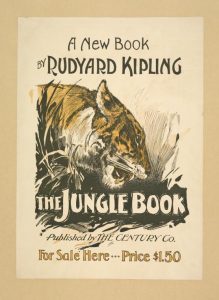
He was a major contributor to the art of short stories. The books he had written for children are considered classics of children’s literature. His reputation, however, changed in regard to the political and social state of affairs during his time and various contrasting views.
Early Life of Rudyard Kipling
Born in the Bombay Presidency of British India on December 30, 1865, Rudyard Kipling was the son of Alice Kipling and John Lockwood and Kipling.
His father, John Lockwood, was a prominent sculptor and pottery designer and served as the Principal and Professor of Architectural Sculpture at the Sir Jamsetjee Jeejebhoy School of Art that had been established in Bombay.
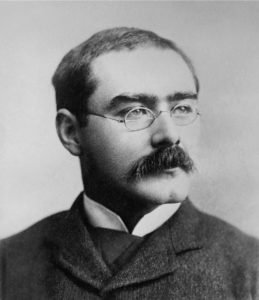
Her mother was very lively and active. John Lockwood had met Alice in 1863 and the duo had courted at Rudyard Lake in Staffordshire, England, and Rudyard was named after that lake.
British Education
Kipling spent most of his life outside India and he had complex issues of identity and national allegiance that could be seen in his writings. The days in Bombay ended when he was five.
He grew up with his sister Alice with a couple boarding British nationals serving in India. They were Captain Pryse Agar Holloway and Sarah Holloway from Campbell Road, Southsea.
Kipling later recalled this phase as a time of horror, neglect, and cruelty at the hands of Mrs. Holloway. Alice returned in the spring of 1977 and removed the children from Lorne Lodge.
Rudyard Kipling: Short Stories
Rudyard Kipling was admitted to the United Services College in January 1878, where the boys were prepared to serve in the army. Though initially rough, the school later allowed him to make firm friendships and provided the setting for his stories in Stalky & Co. written in 1899.
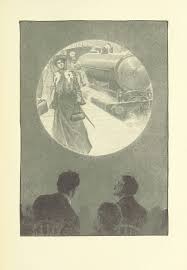
Kipling also fell in love with Florence Garrard during this time who was boarding with Trix at Southsea.
Return of Rudyard Kipling to India
Kipling lacked the academic ability to get an entrance into Oxford University. Rudyard’s father had obtained a job as the Principal of the Mayo College of Art And Curator of the Lahore Museum.
Kipling got a chance to become the assistant editor of the local newspaper, the Civil & Military Gazette.
Kipling had felt a strong bond toward the country where he was born and he said that this had been true for other Indian boys born in India who were originally supposed to be from England.
Rise to Fame
Kipling worked hard as the assistant editor of The Civil & Military Gazette under Stephen Wheeler, the magazine being featured six days a week. The first collection of verses written by Rudyard Kipling was published in 1886 as Departmental Ditties.
Kay Robinson became the new editor and allowed Kipling more creative freedom through his contribution to short stories in the newspaper.
His ex-colleagues mentioned his love for his work with ink. Kipling also used to spend the summers in Shimla or some other hill stations and the Gazette featured stories from those places.
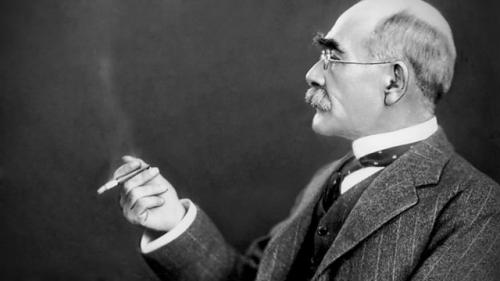
The thirty-nine stories written by Kipling during this phase was published in Plain Tales from the Hills as his first prose collection. In November 1887, he moved to Allahabad to work as the assistant editor of The Pioneer and lived in the Belvedere House in Allahabad.
By 1888, he had published six collections of short stories. He was discharged from the Pioneer early in 1889 after a dispute. He sold the rights to collections of stories for a total of 250 pounds and a small royalty.
Travels by Rudyard Kipling
Kipling left India traveling the world. He went to San Francisco through Rangoon, Hong Kong, Singapore, and Japan. He had also supposedly fallen in love with a geisha.
Kipling traveled through the United States and his works were published in the Letters of Travel. He started his tour from San Francisco visiting numerous cities like Portland and Seattle.
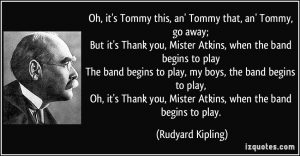
He went up to Canada and Vancouver in British Columbia. He visited the Yellowstone National Park, then the Salt Lake City, Omaha, Chicago, and even Beaver. He also met the Hill family and Professor Hill.
He is also known to have met Mark Twain on his journey and had a conversation with him about the sequel to Tom Sawyer. He came back to London and published his writings in several magazines.
He had also met an American writer and publishing agent by the name of Wolcott Balestier and had collaborated on The Naulahka and later married his sister Caroline Starr Balestier.
Though Carrie was 3 years older, they married in London in 1892. The couple spent their days in the Bliss Cottage afterward, where he started writing The Jungle Book.
Peak of Career
Rudyard Kipling lost his daughter at an early age and this left a mark on his life. He published the works he had made for small children named Just So Stories. He had even lost his son during the First World War whom he had urged to join the army.
John had weak eyesight like his father and had got a chance to be in the Irish Guards, though his body was never discovered after death.
He had even attacked the Kaiser as a threat to Britain in The Rowers. He had even written two science fiction stories like With the Night Mail and As Easy As A.B.C.
Nobel Prize
Rudyard Kipling was awarded the Nobel Prize for Literature after being nominated by Charles Oman from the University of Oxford.
Kipling was the first recipient of the English language since the inception of the award in 1901. Kipling had become a Freemason in 1885 before the minimum age of 21.
Poems
Kipling had been initiated into Hope and Perseverance Lodge No. 782 in Lahore. He was entered by a Hindu from Brahmo Samaj as an Apprentice, passed to Fellow Craft by a Mohammedan, and was raised to Master Mason by an Englishman.
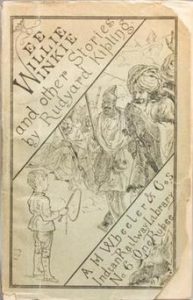
He had authored the famous poem ‘The Mother Lodge’ and also written The Man Who Would Be King. Rudyard Kipling kept writing until the 1930s, but his fame and success had diminished.
He died from a hemorrhage in his small intestine on January 12, 1936. He was very wise and learned and had seen much of the world through his travels.
More Info On- Kim Novel, Tommy by Rudyard-Kipling, Famous Quotes, Rudyard-Kipling If
Captain Courageous: Novel by Rudyard Kipling about adventure and self-discovery.